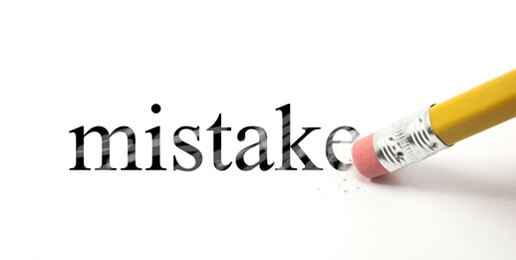
Perhaps some remember the plethora of news stories a few years ago touting a 2012 research paper that purported to show that authoritarian personality types tend to be politically conservative. In a remarkable turn of events the researchers have admitted they made a monumental blunder—oh, wait, that’s what I said. They said they made a minor error. The minor error was that the data they analyzed suggested the exact opposite of what they claimed it did. The website Powerline describes this minor correction as the “epic correction of the decade.”
Three researchers, Brad Verhulst, Lindon J. Eaves, and Peter K. Hatemi, published their paper “Correlation not Causation: The Relationship between Personality Traits and Political Ideologies” in the American Journal of Political Science (as opposed to real science). Their paper was based on personality models developed by Hans Eysenck in the 1950’s and 1960’s.
The authors looked at data collected about three personality traits labeled P (a kinder, gentler euphemism for “psychoticism”), Neuroticism, and Social Desirability. The original paper stated this about P:
P is positively correlated with tough-mindedness, risk-taking, sensation-seeking, impulsivity, and authoritarianism…. In social situations, those who score high on P are more uncooperative, hostile, [and] troublesome…. At the extremes, those scoring high on P are manipulative, tough-minded, and practical. By contrast, people low on P are more likely to be more altruistic, well socialized, empathic, and conventional. As such, we expect higher P scores to be related to more conservative political attitudes, particularly for militarism and social conservatism.
The hapless authors concluded that P correlated with political conservatism, and Neuroticism and Social Desirability (which is the desire to appear in a socially desirable light) correlated with political liberalism, when in fact, the data on which they based their analysis demonstrated the reverse. The data suggest that it is liberals who demonstrate “tough-minded authoritarianism” which manifests in support for liberal social and military policies. And those low P people who are more altruistic, well socialized, and empathic must be conservatives.
Their original paper also claimed that “People higher in Neuroticism tend to be more economically liberal…. That is, neurotic people are more likely to support public policies that provide aid to the economically disadvantaged (public housing, foreign aid, immigration, etc).” In other words, the authors originally claimed that data suggests liberals are more likely to support public policies that help the disadvantaged, whereas, in reality, the data suggest that conservatives are more likely to support such policies.
So, the corrected analysis now suggests that impulsive, uncooperative, hostile, troublesome, manipulative authoritarians tend toward political liberalism on social and military issues. Did we really need a study to tell us that?
Thanks to vigilant researcher Steven G. Ludeke at the University of Southern Denmark, who read their paper and followed up on what seemed odd conclusions, the authors posted their correction in January of 2016 in the American Journal of Political Science, which was picked up by the website Retraction Watch, and then by the blog Powerline.
Brad Verhulst, one of the paper’s authors, offered this analysis of their “minor” error:
“The correction to the original manuscript was quite minor, and consisted of an error in the descriptives…..None of the primary conclusions were affected by the error….The reason that the correction is quite minor is because we were looking at whether personality traits caused people to develop political attitudes….We found that personality traits and political attitudes were correlated, but that there was no evidence that there was a causal relationship….Accordingly, this is a minor error because the fact that the correlation is ‘exactly reversed’ does not change the fact that personality traits do not cause political attitudes….Thus, while the descriptive statistics were incorrect, the conclusions based on the analyses do not change.”
Does the fact that their error did not affect their “primary conclusions” regarding the correlative relationship between personality traits and political leanings make it minor? What about the effect their error had on the way the secular press—always eager to malign conservatives—erroneously reported on conservatism? Was that minor? Do they bear any measure of culpability for that?
Dr. Ludeke seems to think this error is significant:
The erroneous results represented some of the larger correlations between personality and politics ever reported; they were reported and interpreted, repeatedly, in the wrong direction; and then cited at rates that are (for this field) extremely high. And the relationship between personality and politics is, as we note in the paper, quite a “hot” topic, with a large number of new papers appearing every year. So although the errors do not matter for the result that the authors (rightly) see as their most important, I obviously think the errors themselves matter quite a lot, especially for what it says about the scientific process both pre- and post-review.
The good that may come of this epic correction of the decade is that many of us learned about Retraction Watch.
 Follow IFI on Social Media!
Follow IFI on Social Media!
Be sure to check us out on social media for other great articles, quips, quotes, pictures, memes, events and updates.
Like us on Facebook HERE.
Subscribe to us on YouTube HERE!
Follow us on Twitter @ProFamilyIFI






























